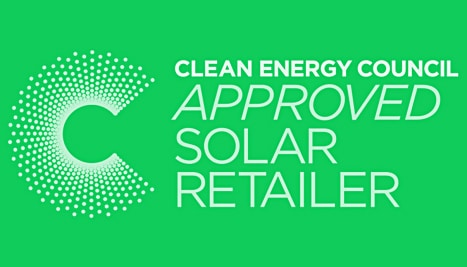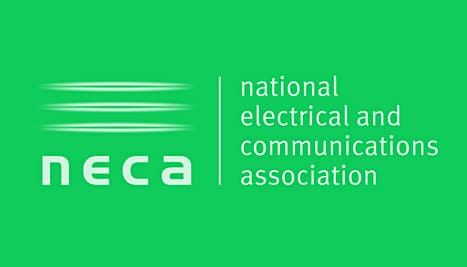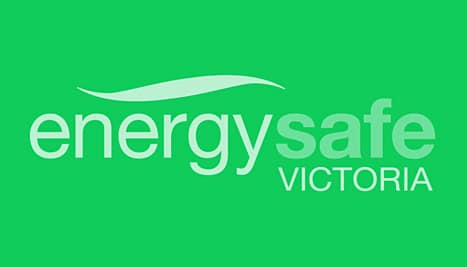NEWS & INSIGHTS
The Cost Breakdown of Hot Water Systems.

Hot water systems are more than just a household convenience; they are integral to the daily functioning of homes and businesses. These systems not only provide the comfort of warm water but also are central to activities like cooking, cleaning, and heating. With advancements in technology, the variety of hot water systems available today can cater to diverse needs and preferences.
Understanding the different types and their associated costs is vital in choosing a system that not only meets your immediate needs but also aligns with your long-term financial plans. In this comprehensive guide, we delve into the various hot water systems available, focusing on their costs to help you make an informed decision tailored to your specific hot water needs.
Types of Hot Water Systems and Their Costs
Electric Hot Water Systems
Electric hot water systems are widely acclaimed for their reliability and straightforward design. These systems function using an electrical element that heats water, which is subsequently stored in an insulated tank, ready for use. One of the key advantages of electric systems is their ease of installation and maintenance, making them a popular choice in many households.
The cost of electric hot water systems can vary, largely influenced by factors such as tank capacity and the system’s energy efficiency rating.
For a basic unit, prices typically start at around $300, making it an affordable option for those on a tight budget. However, for larger households requiring higher capacities, the price can escalate to $1,500 or more. It’s important to consider not just the initial cost but also the long-term energy consumption, as electric systems can be more expensive to operate, especially in regions with higher electricity tariffs.
Gas Hot Water Systems
Gas hot water systems are renowned for their efficiency and quick heating capabilities. These systems are particularly advantageous for homes with existing natural gas connections, offering a seamless integration into your household’s energy usage. Gas systems heat water significantly faster than their electric counterparts, providing an uninterrupted supply of hot water even during peak usage times.
In terms of cost, gas hot water systems are generally more expensive upfront than electric models. The price range for these systems starts at about $900, with more advanced and efficient models costing upwards of $2,000. However, the higher initial cost can be offset by lower operating expenses over time, as natural gas is often cheaper than electricity. This makes gas hot water systems a cost-effective choice in the long run, especially for larger families or high-demand scenarios.
Solar Hot Water Systems
Solar hot water systems represent the pinnacle of environmentally friendly and sustainable living. Harnessing solar energy, these systems significantly reduce reliance on traditional energy sources, thereby cutting down on long-term operating costs. A typical solar system includes solar collectors, usually mounted on the roof, and a storage tank for the heated water.
The initial investment for solar hot water systems is higher compared to electric and gas systems, with prices ranging from $2,000 to $7,000. This cost is influenced by factors such as the quality of solar collectors, storage capacity, and the complexity of the installation.
However, the long-term savings in energy bills and the potential for government rebates and incentives for hot water upgrades make solar systems an attractive option for eco-conscious consumers. The upfront cost can be seen as an investment into a sustainable future, reducing both your carbon footprint and energy expenses.
Heat Pump Systems
Heat pump systems are at the forefront of heating technology, offering high efficiency by extracting heat from the surrounding air to warm the water. This innovative approach makes heat pump systems remarkably energy-efficient, particularly in mild climates. Make sure you know how heat pump works before using it in the home.
The cost of heat pump systems is on the higher side, with prices typically ranging from $2,500 to $4,000.
This initial investment is primarily due to the advanced technology and more complex installation process involved. However, the benefit of lower operating costs makes heat pump systems a smart choice for those looking to minimize their long-term energy expenses. They are particularly suitable for regions where electricity costs are high, or natural gas is not readily available.
| System Type | Cost Range |
| Electric | $300 – $1,500 |
| Gas | $900 – $2,000+ |
| Solar | $2,000 – $7,000 |
| Heat Pump | $2,500 – $4,000 |
Size and Capacity Considerations for Hot Water Systems
The size and capacity of a hot water system play a crucial role in determining its suitability for your needs and its cost. Here’s a brief overview of how size and capacity considerations apply to each type of hot water system:
Electric Hot Water Systems
- Size Range: Electric systems range from compact units ideal for single-person households to larger tanks for families.
- Capacity Needs: A typical guideline is about 25 to 30 liters per person. Smaller units (50-75 liters) work well for individuals or couples, while families may need larger tanks (150-300 liters).
- Cost Implication: Larger tanks are more expensive. However, choosing a tank too small can lead to running out of hot water, necessitating more frequent heating cycles and increased energy costs.
Gas Hot Water Systems
- Size Range: Gas systems also vary in size, but they are generally more efficient in heating larger volumes of water.
- Capacity Needs: Similar to electric systems, 25 to 30 liters per person is a good benchmark. However, gas systems heat water faster, so a slightly smaller tank might suffice compared to electric if the usage is spread throughout the day.
- Cost Implication: Larger gas systems are costlier upfront but can be more economical for households with high hot water usage due to their efficiency.
Solar Hot Water Systems
- Size Range: Solar systems often require larger tanks to ensure a sufficient supply of hot water during periods of less sunlight.
- Capacity Needs: It’s advisable to opt for a larger capacity (e.g., 300 liters or more for a family) to compensate for days with less solar gain.
- Cost Implication: The larger the system, the higher the initial investment. However, the long-term savings in energy costs can be substantial.
Heat Pump Systems
- Size Range: Heat pump systems usually come in various sizes similar to traditional electric or gas systems.
- Capacity Needs: Sizing follows the standard 25 to 30 liters per person rule, but efficiency in heat transfer can allow for a slightly smaller size compared to conventional electric systems.
- Cost Implication: Larger heat pump systems are more expensive. However, their high efficiency can offset the cost in the long term, especially in climates suitable for heat pump technology.
Installation Costs for Different Types of Hot Water Systems
The installation costs of hot water systems are a crucial factor to consider when selecting the right option for your home. These costs can vary significantly depending on the type of system you choose and the specific requirements of your installation. Let’s break down the installation costs for each type of hot water system:
Electric Hot Water Systems
Electric hot water systems are typically the easiest and most cost-effective to install. This affordability is due to the relative simplicity of the systems themselves and the commonality of the necessary infrastructure in most homes.
- Cost Range: The installation costs for electric systems usually range from $300 to $700. This variation in cost can depend on factors like the ease of access to the installation site, the need for any additional electrical work to accommodate the new system, and the removal of an old system if applicable.
- Factors Influencing Cost: If your home already has an appropriate electrical setup and sufficient space for the system, installation can be on the lower end of the cost spectrum. However, if additional electrical upgrades are needed or if the installation site requires significant preparation, costs can increase.
Gas Hot Water Systems
Gas hot water systems are more complex to install than electric ones, especially if your home does not already have a gas connection.
- Cost Range: Installation costs for gas systems can range from approximately $1,000 to $2,000. This higher cost reflects the complexity of the installation, which often involves running gas lines, ensuring proper ventilation, and complying with safety standards.
- Factors Influencing Cost: The key factors impacting the cost include the length and complexity of running new gas lines, the need for any additional ventilation or modifications to existing structures, and the removal of previous systems. Homes already equipped with gas lines might see lower installation costs.
Solar Hot Water Systems
Solar hot water systems have the most variable installation costs due to the nature of their components and the complexity of installation.
- Cost Range: The installation for these systems typically falls between $1,000 and $2,000, but it can be higher depending on several factors.
- Factors Influencing Cost: The major cost determinants include the type and number of solar collectors, the suitability of your roof for installation, and any additional plumbing or electrical work required. Installation costs can be higher if your roof needs reinforcement to support the collectors or if the collectors are located far from the storage tank, necessitating extensive plumbing work.
Heat Pump Systems
Heat pump systems, while efficient, can be more expensive to install due to their specialized technology.
- Cost Range: The installation cost for heat pump systems generally falls within the $1,000 to $2,500 range.
- Factors Influencing Cost: These costs are influenced by the need for a suitable outdoor space for the heat pump unit, the complexity of integrating the system with your existing plumbing, and any additional electrical work required. If your home’s existing electrical system needs an upgrade to accommodate the heat pump, this can also increase the installation cost.
Operating Costs, Efficiency, Maintenance, and Longevity of Hot Water Systems
When choosing a hot water system, it’s important to consider not only the initial installation costs but also the operating costs, efficiency, maintenance requirements, and expected longevity. These factors significantly impact the overall value and cost-effectiveness of the system over its lifespan. Let’s explore these aspects for each type of hot water system:
| System Type | Operating Costs and Efficiency | Maintenance and Longevity |
| Electric | Electric hot water systems are generally less efficient than other types due to their reliance on electricity, which can be a more expensive energy source. This results in higher operating costs, particularly in regions with high electricity rates. | Electric systems require relatively minimal maintenance. However, they typically have a shorter lifespan, lasting about 10-15 years. Regular inspections of elements and thermostats, as well as occasional tank cleaning, are necessary to maintain efficiency. |
| Gas | Gas systems tend to have lower operating costs compared to electric systems, especially if natural gas is readily available and reasonably priced in your area. They are more efficient because gas is a more cost-effective energy source for heating water. | Gas systems also last about 10-15 years. Maintenance includes regular checks of the burners, venting systems, and pilot lights. It’s crucial to ensure that the system is well-ventilated and the gas connections are secure to avoid leaks. |
| Solar | Solar hot water systems have the lowest operating costs since they utilize solar energy, a free and renewable resource. After the initial investment, the cost to operate these systems is significantly reduced, making them highly efficient in the long term. | Solar systems can last up to 20 years, often longer than traditional systems. Maintenance involves ensuring solar panels are clean and unobstructed, and the system’s antifreeze levels and circulation pumps are in good condition. Regular checks are recommended for optimal performance. |
| Heat Pump | Heat pump systems are highly efficient as they use ambient heat from the environment, which leads to lower operating costs. These systems are particularly effective in mild climates where the temperature differential is not extreme. | The longevity of heat pump systems is comparable to solar systems, often reaching up to 20 years. Maintenance includes checking the heat exchanger, filters, and ensuring the system is free from debris. They require a bit more maintenance than gas or electric systems due to their complex mechanics. |
Key Takeaways
- Efficiency and Operating Costs: Solar and heat pump systems stand out for their high efficiency and low operating costs. Gas systems are more efficient than electric ones, particularly in areas with lower gas prices.
- Maintenance Needs: Regular maintenance is essential for all types of systems, though the requirements vary. Solar and heat pump systems might need more specialized maintenance but offer longer lifespans.
- System Lifespan: The lifespan of your hot water system is a crucial factor. While electric and gas systems offer a decent lifespan of 10-15 years, solar and heat pump systems can last up to 20 years, providing a longer term of service.
Additional Features and Considerations
Modern hot water systems come with features like smart controls, timers, and adjustable temperature settings, which can enhance convenience and efficiency. Additionally, consider the environmental impact and energy ratings when selecting a system.
Conclusion
Understanding the costs associated with different types of hot water systems is crucial for making an informed decision. Whether you opt for a traditional electric or gas system, an eco-friendly solar solution, or a highly efficient heat pump system, consider the long-term benefits and savings alongside the initial investment.
Hot water systems are not just about providing warm water; they are an investment in your home’s comfort and efficiency. With careful consideration and the right choice, you can enjoy the benefits of your system for years to come.
COMPLETED PROJECTS, PARTNERS AND MEMBERSHIPS





































Australian Energy Upgrades Credentials

Australian Energy Upgrades have signed on to the Clean Energy Council Solar Retailer Code of Conduct – the only solar industry code of conduct authorised by the Australian Competition and Consumer Commission (ACCC).

Australian Energy Upgrades are registered solar installers with Solar Victoria. This allows us to provide eligible households with subsidised solar installations under the Solar Victoria Rebate scheme.

Australian Energy Upgrades is a member of the National Electrical and Communication Association (NECA), recognised nationally as the peak industry body of our field. Our membership ensures our employees have the highest level of training and resources available to fulfil our work to the highest possible standard.

Australian Energy Upgrades holds a Registered Electrical Contracters license (REC:23631). You can be confident your installation is conducted to the highest level of safety and compliance in accordance with all Australian standards and regulations. We don’t just hire qualified people, we are qualified.

- 1300 996 917
- [email protected]
- P.O. Box 2077 Grovedale East 3216
Our passion is to help Australians become more energy independent. After a difficult 10 years of constant power company price increases, black-outs and coal-fired power plant failures, we’re seeing more Australians searching for a better solution.
